SUMMARY
This is AI generated summarization, which may have errors. For context, always refer to the full article.
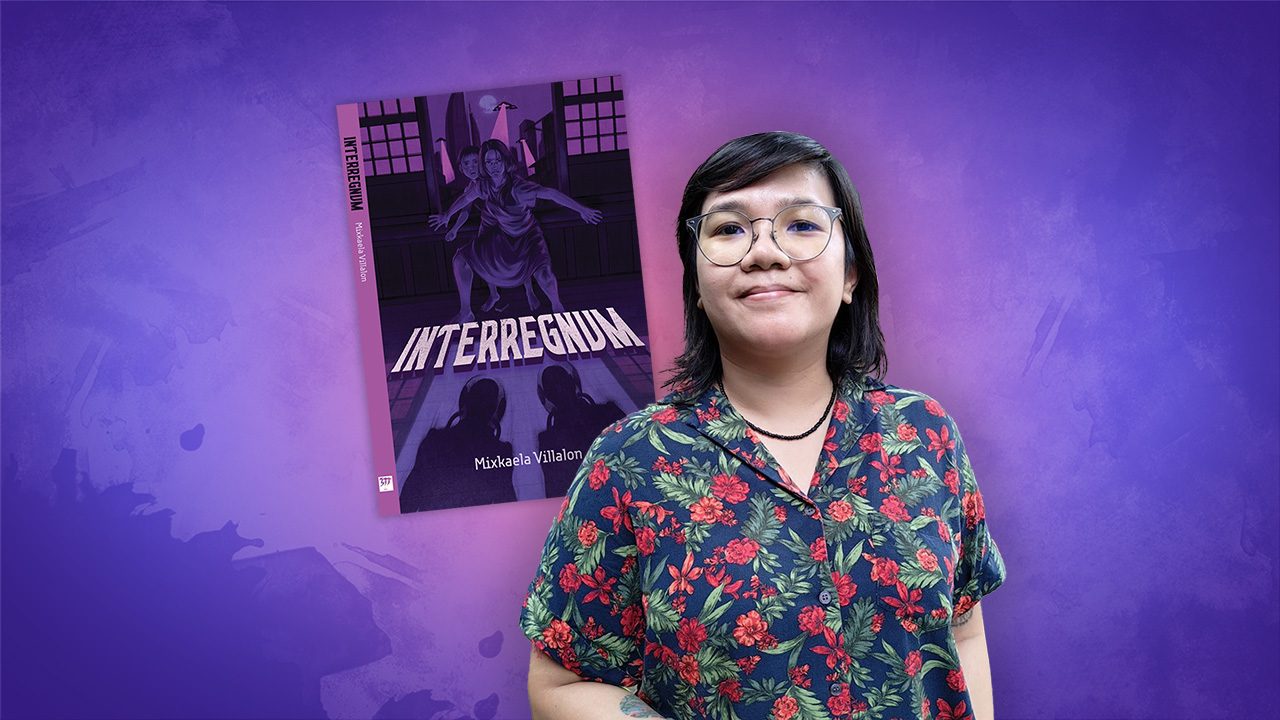
MANILA, Philippines – Mixkaela Villalon was a big reader as a kid. Like almost any individual who was a bookworm in their childhood, Villalon later grew up to become a writer, masterfully stringing words together for TV, film, and even theater.
But it was only in 2021 when she had finally published her short story collection, Interregnum, under the women-led publishing house Gantala Press. Interregnum – a sci-fi, fantasy, and satirical pocketbook that features a varied yet cohesive set of short stories – charts the Filipino experience across different time periods and settings.
In celebration of National Women’s Month, Rappler spoke with Villalon to know more about the work that went into publishing Interregnum, why she highlights the Filipino social conditions in her work, and how she unlearned viewing the male experience as universal when reading different texts growing up.
Can you share a little bit about yourself? How old are you, what do you do for a living, and what do you like to do outside of writing?
I am 37 turning 38 this year. I’ve been more or less a freelancer my entire life, and it’s all different variations of writing. I’ve written for TV, film, and theater. When COVID hit, I worked in advertising, and then now, I’m doing digital content for foreign businesses.
What do I do outside of writing? I like to watch live music acts, play video games, hang out with friends, and play games.
You’re a playwright and a screenwriter on top of being a published author. Can you share how you got into writing in the first place?
I was the kid who didn’t play well with other kids. I wasn’t sporty, so I usually spent a lot of time just reading stuff. You read stuff, you write stuff. And then, one of my grade school teachers said that I write well, which I think is a curse because the moment you tell a kid that they’re good at something, it will be ingrained in their mind that, “Oh, I should be doing this for the rest of my life.” So, I feel like that kind of ruined my life. Someone said that I was good at writing, so I thought that I should keep pursuing it.
I took up Malikhaing Pagsulat (Creative Writing) in college, and eventually, you run into people or mentors who write for a living. I think it was the third year of Virgin Labfest that I watched, and then I wanted to do that too, so I went into it. Same with TV and film, I ran into these circles and [asked], “Oh, what do you do?” “I write for TV.” “Should I try that, too?” That sort of thing.
For those who are planning to get their hands on a copy of your book Interregnum, can you give an overview of what it’s about?
There isn’t a united thread throughout the story, but what I really was going for is that each story was distinctly Filipino or captured the experiences of being Filipino. But also, it isn’t strictly social realist. It varies. There’s a story that takes place in the alternate universe of the Philippines, there’s a story on a community of informal settlers, there’s a story on a chance encounter of getting lost in the city then the guardians are the Badjao kids who would hang on to a jeep. I can’t tell you what they’re about just because the stories vary.
What was it like conceptualizing the book? Where did you draw inspiration from to put the entire book together?
I’ve been writing these stories since, I think, as early as 2011. I’m very slow when I write for myself as opposed to the things I have to do for a living. One of my Creative Writing professors said that you should write about your experiences [and] your time. And so, some of these stories are reflective of the time that they were written. All of the stories in the book have also been published in different anthologies, but I hadn’t released them yet as a collection.
The idea to bring them all together happened during the pandemic. I think I was about 15 or 16 when 9/11 happened, so the significance of that moment wasn’t clear yet. Although, in retrospect, yeah, the world changed, but the pandemic was clearer to me because it was what really made me go like, “Holy shit! The world really did change!” And so, the realization came to me that I need to publish these short stories as a collection because it’s just a matter of time when the readers would no longer understand the context of what was happening when I wrote some of those stories.
That’s why Interregnum is the title of the collection, because the moment that it was published, it was a period of weirdness. Like, the old world has died, but we don’t know what the new world is gonna look like. I guess I just put a stamp on this weird time that we were going through. Let’s put these stories out, because the next batch of stories I’ll ever write is going to be completely different just because the time has completely changed.
The cover of Interregnum is really cool. Can you share how you conceptualized it?
I actually didn’t create the cover! It was drawn by the really, really great Betina Continuado. The way I understood she conceptualized it was she read the whole book, and even if there was no narrative thread across all the stories, she took bits and pieces of the elements of the stories and then created that scene. I’m happy with it. The strangers in the doorway is a nod to Gitnang Araw, which is a story [in Interregnum], the crab-shaped UFOs are a nod to Pangulong Paquito. There’s even a tower there in the background and that’s a nod to Ang Torre, which is also a story. It’s bits and pieces of the stories in the book.
Your short story collection is published under Gantala Press. Is there a reason why you chose to have it published under them?
Definitely. Gantala Press has always been in my radar because they’re a woman-run indie publisher. I’ve come across them several times at mobilizations and activist events. They’re always there. So, they became friends of mine. They’ve published a lot of books that I’ve bought and read and they’re good. Given their roster and their track record, I thought I’d like to approach them with Interregnum.
Because I went into Experimental Speculative Fiction, science fiction, fantasy, magical realism, I already knew that it would be difficult to publish this book. So I went up to Gantala with the idea that, number one, I’m a woman, you’re women, so you get it. Number two, these are not traditional stories that big publishing houses would usually publish, but because you are an indie press, I would bet that you could publish this. Gantala said okay, they read the manuscript, and they liked it.
It’s been three years since your book was published. How do you think the reception has been so far?
Being a writer, especially in the Philippines, is a very weird – and, in my perspective – a pretty privileged position as an artist. Just because we’re quite hidden. If you’re a theater actor, you’re going to get recognized because your face is out there, but if you’re a writer, it’s mostly just your name. Sometimes, not even your name would get recognized, and that’s fine by me. Unlike, say, live music or theater, where the artist performs right in front of the audience and you get the feedback, writing doesn’t have that. I don’t personally know how many people have read the book. Some of my friends, they’d tell me, “Hey, I read your book. Congrats.” [I’d reply], “Okay, thank you.” The strangers, I don’t know, and that’s completely fine by me.
I personally don’t have an accurate idea of how it is received, but I have a clear memory, and it’s one of my favorite memories. I was at a gig. My boyfriend performed, other musicians performed, then, when the event finished, we were just hanging out at Mow’s. My boyfriend joked around, then he called me by my whole name. He said, “You’re too much, Mixkaela Villalon!” And then, someone in our group, a young dude, stops in his tracks and goes, “Wait. You’re Mixkaela Villalon?” And he pulls out a copy of my book from his back pocket, and he goes, “Is this you?” I say, “Yeah, that’s me.” And he says, “Yo, I’ve been reading this during my bus commutes!” And I didn’t even know, and he didn’t even know me! That’s what I’m saying about how you’re not gonna see how you’re received, but that moment was my favorite because it’s like, “Aww, people read my stuff!”
Your book Interregnum heavily criticizes the state of Philippine politics and governance. Why is it important for you to highlight these things in your work?
It’s important and, also, I think I have no choice. Not in a bad way, but if you are an artist in the Philippines [at] this time, what else are you going to talk about? I cannot write about the experiences of someone who does not live here because that’s not my lived experience. And also, what a disservice to be an artist in the Philippines and write about something else. Our experiences, these social conditions that we are living through, it’s both our privilege and curse. It’s a privilege because no one else is going to talk about this if not us. We are artists of this time. Filipino artists in previous decades and generations have also talked about their own thing. You’re an artist of this particular time in history. It is your privilege to talk about this time in history, even if, at the same time, we are cursed.
Did you ever encounter challenges as a female writer in the Philippines?
I wouldn’t say I’ve encountered challenges of being a female writer. However, I grew up reading works by Filipino authors. And we can’t do anything about it, majority of Filipino authors are male. It’s not just Filipino authors, even works in English. I unfortunately grew up with my mindset molded into thinking that the male experience is universal. And even when I play a video game, I’m placed in the point of view of a character who is male just because there are more of them.
The way my mind was molded, I was led to think that the male experience is more universal. In my first few short stories, you would notice that too. Even if I don’t put a gender on my main character, in my brain, it’s a man. It’s weird, because it’s not my experience! It took a while for me to unlearn that, like, “Why did I assume they’re men when I’m writing this?”
And then, eventually, when I started reading stories and works written by women, it turned out that the jump between the male and female experience isn’t that big, so there should not be a universal male point of view. It’s just a universal human point of view. In that sense, it was a process of unlearning, and I’m willing to bet that even young female writers to this day are going to face that, whether or not they’re aware, just because the artwork that we are consuming frames the male experience as more universal.
What advice can you give to young writers who would also like to get their work published in the future?
Put your work out there. Pitch it to publishing houses, and if no one wants to publish you, publish a zine. It doesn’t matter how you approach getting published. There are a lot of calls for anthologies, so join that. Rejection is part of the thing. It’s fine. Just because you’re rejected, doesn’t mean your work is bad. Maybe it just means it’s not the right audience or it’s not the right publishing house. And even if no one wants to bet on your work, bet on yourself.
If you want to publish it online, that’s fine, too. A lot of Wattpad writers are getting a lot of success these days. For me, just get it out there. Don’t let it stay in your hard drive or in your trunk because life is too short. Get yourself out there. And also, no one reads so the risk isn’t that big. Just put it out. There’s nothing wrong with that. Gambling on yourself is part of your progress as a person and as an artist. – Rappler.com
Editor’s Note: All quotes have been translated into English.
Add a comment
How does this make you feel?

![[OPINION] Where are the community libraries 30 years after we passed the law?](https://www.rappler.com/tachyon/2024/06/tl-barangay-public-libraries.jpg?resize=257%2C257&crop=195px%2C0px%2C720px%2C720px)




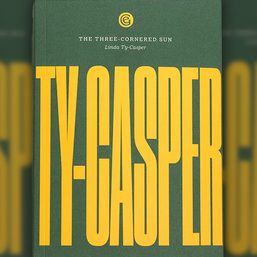
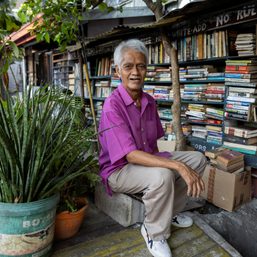


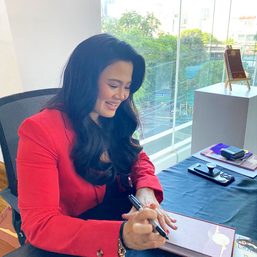
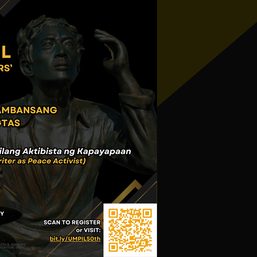
![[OPINION] How can teachers develop a reading habit among learners?](https://www.rappler.com/tachyon/2024/07/imho-reading-habit.jpg?resize=257%2C257&crop_strategy=attention)



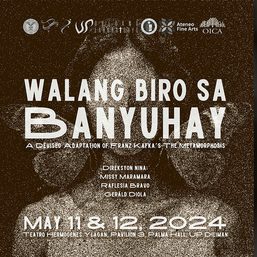
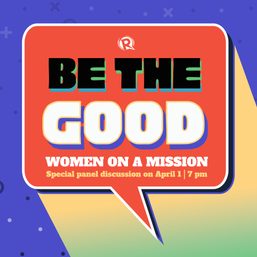



There are no comments yet. Add your comment to start the conversation.